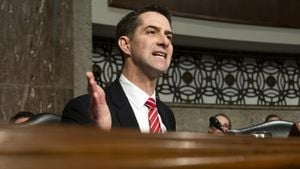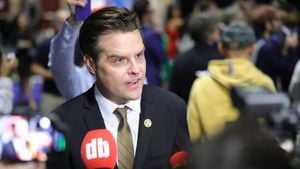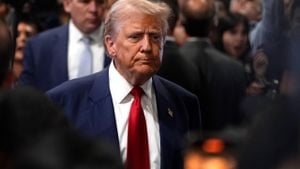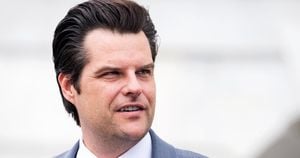The legal saga surrounding President-elect Donald Trump took another twist recently as sentencing for his involvement in the hush money payments linked to adult film actress Stormy Daniels was delayed indefinitely. This postponement has sparked renewed discussions about the legal boundaries involving presidential immunity, particularly as Trump prepares to assume office once again.
On November 22, 2024, Judge Juan Merchan, who is overseeing the case, issued this delay to allow Trump’s legal team to argue for the dismissal of the charges based on his recent electoral victory and the concept of presidential immunity. According to reports, Trump's attorneys are asserting the recent Supreme Court decisions on presidential protections could invalidate his felony conviction tied to falsifying business records.
The case originated from payments made by Trump's former attorney, Michael Cohen, to Daniels during the 2016 presidential campaign to keep her allegations of an affair under wraps. The felony counts against Trump include 34 charges of falsifying records, making him the first former president convicted of such felonies.
Trump's team is approaching the court with optimism, arguing, "Dismissal of this case is necessary under the Constitution and federal law to facilitate the orderly transition of Executive power." They highlighted the public support he received during the election as indicative of the American people's will against what they term the "witch hunt" targeting Trump.
Judge Merchan has set deadlines for Trump's motion to dismiss the case by December 2, with Manhattan District Attorney Alvin Bragg's response due by December 9. This timeline aligns with Bragg's suggestion to freeze proceedings during Trump's presidential term, effectively rolling the clock on the sentencing until at least 2029.
Crucially, the prosecution acknowledges the unique legal challenges presented by Trump's return to the White House. They hinted at the possibility of delaying sentencing until the end of his term to protect constitutional interests and the integrity of judicial processes.
Trump’s legal battles are emblematic of the complex interplay between politics and the judiciary. His impeachment history and subsequent election directly influence the narrative surrounding judicial accountability as he maneuvers through the legal framework set forth by the nation's highest courts.
This postponement also follows other developments within Trump's administration appointments. He has nominated Pam Bondi, the former Florida Attorney General, to lead the Justice Department. Bondi was pivotal during Trump’s impeachment defense, setting the stage for potential shifts within the DOJ's operational focus under Trump’s leadership.
Reflecting on the legal environment facing Trump, political analysts note the weighty implications of this delay. The case continues to highlight the friction between Trump’s political ambitions and the judiciary's role, raising significant questions about the future of legal accountability for elected officials.
The upcoming months will be pivotal as Trump's team pushes for dismissals and navigates the challenging waters of legal discourse shaped by his unprecedented circumstances. The intersection of his presidency and legal challenges sets the stage for continued public scrutiny and political debate.
Adding layers to this narrative is the divided public opinion on Trump’s legal predicaments, amplified through social media platforms and news outlets. Many of his supporters label the legal actions as politically motivated attacks, whereas opponents argue for the rule of law to be upheld.
With the legal framework shifting rapidly around him, how Trump’s administration addresses these challenges will likely shape the political and legal landscapes for years to come. There’s much at stake, including the legitimacy of judicial processes and the overarching principle of accountability for public officials.
Even as potential sentencing dates seem distant now, the ramifications of these proceedings will undoubtedly echo throughout Trump's anticipated presidency. For now, many are left questioning whether the existing legal structures can adapt to mitigate the responsibilities of those at the highest echelons of power.



